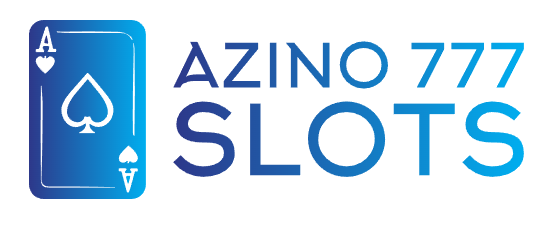In the exhilarating world of sports betting, we often find ourselves captivated by the numbers and probabilities that shape the outcomes of our favorite games. As we delve into the intricacies of becoming a sports betting oddsmaker, we discover that this role is as much an art as it is a science.
Together, we embark on this journey to understand the blend of statistical acumen and intuition required to succeed in this field. We will explore the essential skills needed, including:
- Advanced mathematical proficiency
- A keen understanding of sports dynamics
By examining the essential tools and technologies at our disposal, we aim to equip ourselves with the knowledge to predict outcomes with precision.
Through this exploration, we seek not only to demystify the process but also to inspire those among us who are drawn to the challenge of setting the odds in this ever-evolving arena.
Developing strong mathematical skills
To become successful oddsmakers, we must hone our mathematical skills to accurately analyze data and calculate probabilities. Embracing mathematics isn’t just about crunching numbers; it’s about finding patterns and making informed decisions that bind us as a community of thinkers.
By mastering analytics, we can convert raw data into meaningful insights, allowing us to assess risks and rewards with precision. Together, we can delve into the intricacies of odds calculation, which forms the backbone of our craft.
As we journey through this process, we build a shared understanding of the mathematical foundations necessary for accurate predictions. Strengthening our analytical abilities empowers us to feel confident and connected, knowing we’re part of a collective that values precision and insight.
Our community thrives when we learn and grow together, supporting each other in our quest to become adept oddsmakers. By developing strong mathematical skills, we’re not just improving individually but contributing to a network of informed and successful peers.
Understanding sports analytics
To truly grasp sports analytics, we need to dive into the data-driven techniques that uncover performance trends and inform strategic decisions. As a community of aspiring oddsmakers, we’re united by our passion for numbers and the stories they tell. Mathematics and analytics form the backbone of our journey, helping us decode complex data to predict outcomes with precision.
Together, we explore how statistics reveal:
- A team’s strengths and weaknesses
- Player performance patterns
- The influence of external factors like weather or venue
By dissecting these elements, we gain insights that feed directly into odds calculation, allowing us to set odds that reflect reality.
Our shared commitment to analytics empowers us to make informed, strategic choices. We’re not just predicting; we’re crafting narratives that resonate with the sports world and enhance our sense of belonging within it.
As we continue this path, we embrace the thrill of discovery and the camaraderie that comes from sharing our analytical successes and challenges.
Utilizing data analysis tools
To effectively harness the power of data analysis, we need to familiarize ourselves with a variety of tools that transform raw data into actionable insights. As aspiring oddsmakers, the role of mathematics and analytics cannot be underestimated. These tools empower us to make informed decisions, ultimately enhancing our odds calculation skills.
By leveraging data analysis software such as:
- R
- Python
- Excel
we can analyze vast datasets efficiently, uncovering patterns that inform our odds.
When we embrace these tools, we become part of a community dedicated to precision and insight. We share a common goal: to predict outcomes more accurately. In this data-driven world, being adept at analytics isn’t just a skill; it’s our ticket to belonging in the sports betting arena.
By mastering these analytical tools, we’re not just crunching numbers; we’re crafting narratives that connect us to the pulse of sports events, making each calculation feel like a shared victory.
Studying team and player dynamics
Understanding team and player dynamics requires us to delve deep into performance metrics and behavioral patterns, enabling more accurate predictions. We immerse ourselves in the world of sports, where mathematics and analytics become our guiding tools.
By analyzing player statistics, we can identify strengths and weaknesses, which helps in predicting future performances. Team dynamics, such as chemistry and morale, also play a crucial role in shaping outcomes.
In our journey, we learn to appreciate how numbers tell a story. Mathematics isn’t just about numbers; it’s about understanding the intricate dance between players and teams. Analytics provide insights that allow us to spot trends and anomalies, helping us refine our odds calculation.
We rely on these insights to build a community where everyone feels informed and connected.
We’re not just crunching numbers; we’re creating a shared understanding of the game. Together, we transform raw data into predictions that resonate with accuracy and shared passion.
Grasping odds calculation methods
To truly master odds calculation methods, we need to explore both traditional formulas and modern analytical techniques that enhance our predictive accuracy.
Mathematics is our foundation, providing the basic structure for calculating probabilities and setting odds. By understanding the fundamental principles, we can ensure our calculations are not only accurate but also fair.
We can’t overlook the power of analytics, which allows us to dive deeper into data, uncovering patterns and insights that might otherwise go unnoticed. Analytics helps refine our odds calculation by incorporating vast amounts of data, improving our ability to predict outcomes with precision and confidence.
As a community of aspiring oddsmakers, we thrive on collaboration and shared knowledge. Together, we can:
- Dissect complex mathematical theories
- Apply cutting-edge analytical tools
This collective effort boosts our skills and fosters a sense of belonging in the sports betting world.
By mastering odds calculation methods, we’re not just setting numbers; we’re crafting a reliable and respected reputation in the industry.
Incorporating market trends analysis
To elevate our odds-making skills, we must integrate market trends analysis to anticipate shifts and stay ahead of the competition. By embracing mathematics and analytics, we can uncover patterns and changes that might influence our odds calculation.
It’s crucial we belong to a community that values precision and insight, where we can share knowledge and refine our strategies together.
We should continuously analyze current and historical data, using statistical models to identify emerging trends. This process involves more than just crunching numbers; it’s about understanding the story they tell.
By doing so, we can adjust our odds calculation techniques in real-time, ensuring we remain responsive and relevant in a fast-paced environment.
In sports betting, the margin for error is slim. Analytics empower us to minimize risks and maximize accuracy. Together, as a community of oddsmakers, our collective understanding of market dynamics will strengthen, allowing us to offer competitive odds that reflect true market conditions.
To effectively integrate analytics into our odds-making process, consider the following steps:
-
Data Collection:
- Gather current and historical data from reliable sources.
- Ensure the data is comprehensive and up-to-date.
-
Trend Analysis:
- Use statistical models to identify patterns and trends.
- Understand the implications of these trends on odds calculations.
-
Community Engagement:
- Share insights and strategies within a community of like-minded individuals.
- Collaborate to refine techniques and improve accuracy.
-
Real-Time Adjustments:
- Continuously update odds based on the latest data and trends.
- Be prepared to adapt quickly to changing market conditions.
By following these steps, we can enhance our odds-making capabilities and maintain a competitive edge.
Building a robust predictive model
To build a robust predictive model, we first need to define clear objectives and identify key variables that influence sports outcomes. Together, we’ll explore the realm of mathematics and analytics to understand these dynamics. We’re part of a community that thrives on precision and insight, and by sharing our knowledge, we can all elevate our skills in odds calculation.
Our first step involves collecting data on:
- Team performance
- Player statistics
- Historical trends
This is where our love for numbers meets our passion for sports. By applying mathematical models and analytical techniques, we can sift through this information to find patterns and correlations.
We’ll use these insights to craft a predictive model that accurately reflects the complexities of the sports world. As we refine our model, we’ll communicate and collaborate, ensuring our approach is comprehensive and inclusive.
This collective effort not only enhances our predictions but also strengthens our bonds as a community of enthusiastic oddsmakers.
Embracing continuous learning and adaptation
Continuous learning and adaptation keep us at the forefront of sports betting, allowing us to stay agile and responsive to ever-changing variables.
In our community, embracing the latest in mathematics and analytics ensures we’re equipped to tackle any challenge. Odds calculation isn’t just about numbers; it’s about understanding the story those numbers tell and how they interact with each other in real time.
We constantly immerse ourselves in new strategies and technologies, fostering a culture of growth and shared knowledge. By doing so, we strengthen our bonds and sharpen our skills.
We don’t just adapt to changes; we anticipate them, staying one step ahead in the dynamic world of sports betting.
As oddsmakers, we thrive on collaboration, recognizing that our collective wisdom enhances our individual capabilities. Together, we navigate the complex landscape of odds calculation with precision and confidence.
This shared journey of continuous improvement not only fosters our sense of belonging but also cements our place as leaders in the field.
Conclusion
To become a sports betting oddsmaker, you must focus on several key areas:
1. Hone Your Math Skills
- Strong mathematical ability is crucial for calculating odds accurately.
2. Delve into Sports Analytics
- Understand and interpret data related to team performance and player statistics.
3. Leverage Data Tools
- Utilize software and tools that can help process large datasets efficiently.
4. Dive into Team Dynamics
- Study how team interactions and player relationships affect performance.
5. Master Odds Calculations
- Learn the various methods for calculating odds to ensure accuracy.
6. Analyze Market Trends
- Keep an eye on how betting markets fluctuate and adjust your odds accordingly.
7. Develop a Strong Predictive Model
- Create a model that can forecast outcomes based on historical data and current trends.
8. Stay Open to Continuous Learning
- Adapt to new strategies and technologies as the field evolves.
With dedication and perseverance, you can excel in this dynamic field by creating accurate odds for the world of sports betting.
Key Tips for Success:
- Keep pushing the boundaries and refining your craft.
- Stay ahead in this competitive industry by continually improving your skills and approach.

